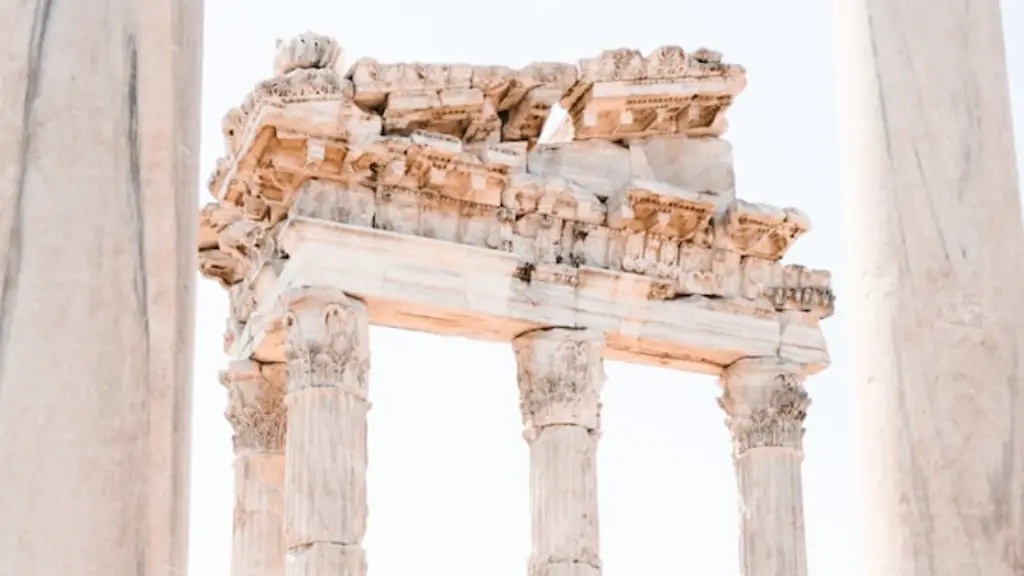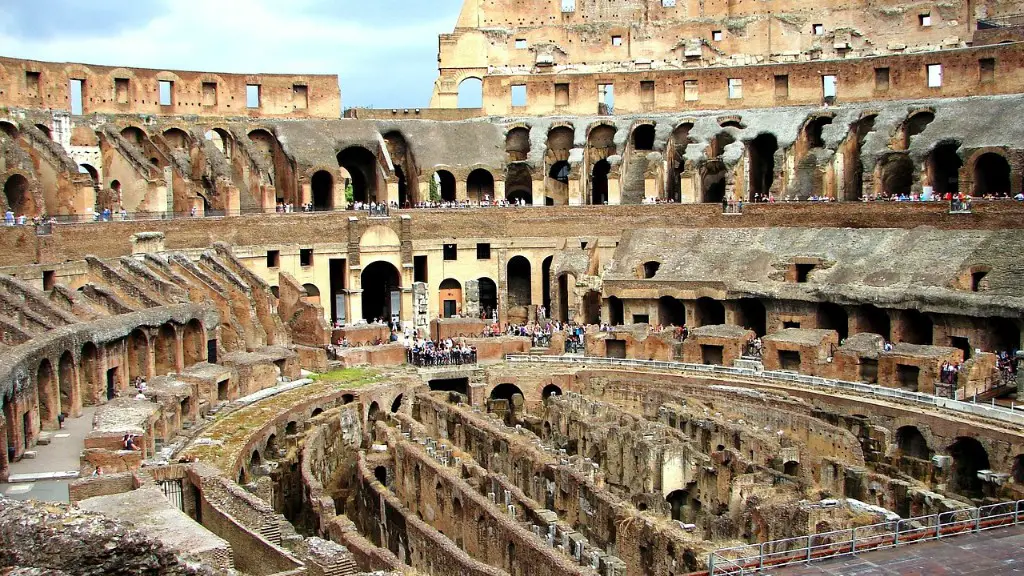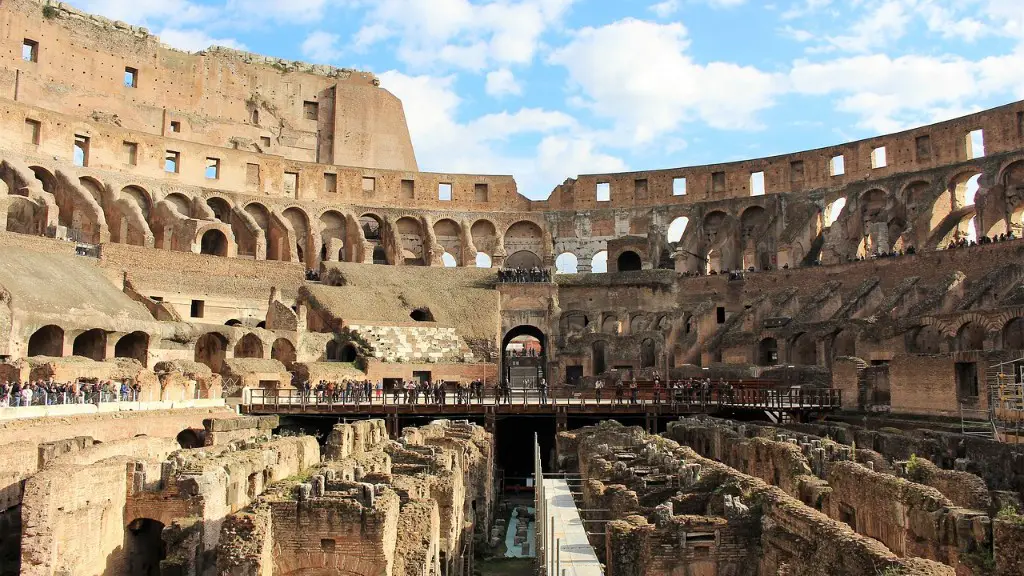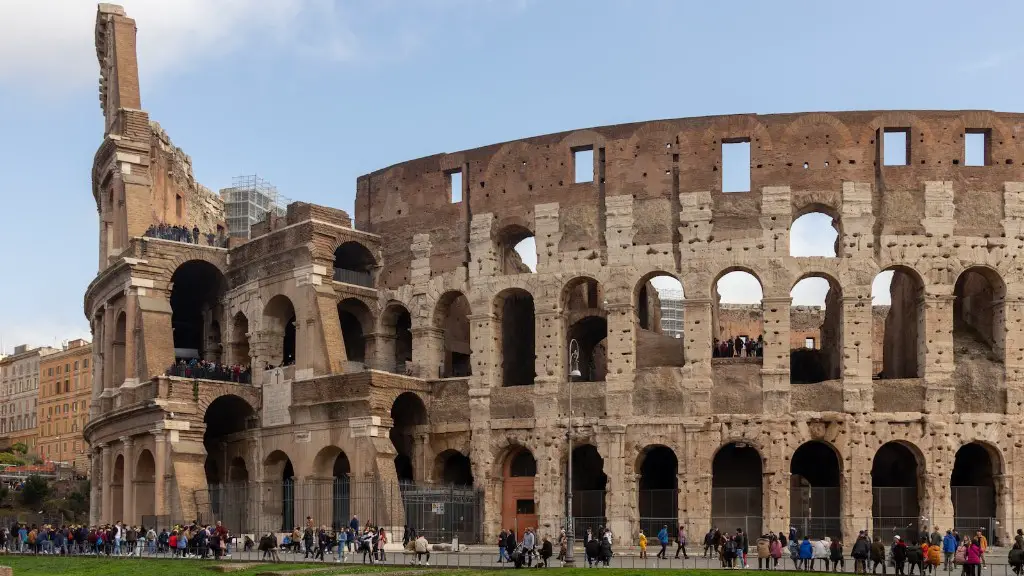When discussing the power of the Senate in Ancient Rome, one cannot ignore its unprecedented influence during the Roman Republic. The Senate was the most powerful institution of the Roman Republic and even after the rise of the Roman Empire, the Senate remained one of the most influential. It has been suggested that the Senate in Rome was so powerful because of its connection to the Roman Patrician class, its meetings of distinguished senators that held power and the wielders of auctoritas.
The Roman Patrician class was a hereditary class, made up of the highest social elite within the Roman Republic. These were families that had distinguished themselves through deeds in the past, and which gave them a distinguished status within the state. It was largely the Patrician class that filled the ranks of the Senate; thus, the Senate became the political power base of the Patricians and was able to maintain its power through this connection.
The meetings of the Senate were filled with distinguished senators who held power and influence within the government. These meetings were integral to the Senate’s power, as decisions were made there that affected the entire Roman Republic. It was in the meetings of the Senate that legislation was passed and issues were discussed such as foreign policy and the regulation of internal affairs.
The wielders of auctoritas were an important part of the Senate. This term refers to the authority or influence that a person held. These were usually people of patrician status or those who had earned a high level of respect within the Roman Republic. These people used their influence to guide the Senate’s decisions and shape its actions. By relying on the auctoritas of these respected individuals, the Senate was able to maintain its power.
The Senate was also a powerful institution due to its control over Roman law and its ability to advise the Roman executives. The Senate was responsible for the enacting of laws that regulated political, social, and economic affairs across the entire Roman Republic. As the sole institution with the authority to pass new laws, the Senate was an important political force in the government and was able to influence the behavior and beliefs of the Roman public and the various provinces.
The Senate also had the power to advise the two elected Roman executives, the two Consuls. These were important posts in the Roman Republic and the Senate would be consulted on major decisions the Consuls had to make. This was an important part of the Roman government, as it ensured that the actions of the Roman leadership were informed by the experience and wisdom of the Senate.
Connection to the People
One of the reasons why the Senate was so powerful in Ancient Rome was due to its connection to the people. The Senate was elected by the voting public and was thus seen to represent the will of the people. This gave the Senate the moral authority to enact laws and advise the elected executives, as the Senate was seen to be acting in the interests of the Roman people.
In addition, the Senate was seen as an important source of advice for the masses. Romans would often look to the Senate for guidance on important matters and for advice in times of need. This was important for ensuring that the government was acting in accordance with the values and beliefs of its citizens.
The Senate also contributed to the public debates of Roman society. The Senate often engaged in political discourse regarding what methods and approaches to adopt when facing a particular issue. This helped form public opinion on a range of important topics and gave Roman citizens a venue to express their views and be heard.
Finally, the Senate was an important institution to the Roman people because it worked to ensure the continuity of Roman society. The decisions of the Senate were seen to represent the collective will of the Roman people and were thus supported and respected by the population.
Connection to the Roman Army
The Senate was also a powerful institution in Ancient Rome due to its connection to the Roman army. The Roman army was the cornerstone of the Roman Republic and the Senate was the entity that had control over the army. This gave the Senate immense power and influence within the government.
The Senate was the sole institution within the government that could declare war and deploy the army for campaigns. This was an important power, as it ensured that the Senate held a formidable level of influence within the government. The Senate was also responsible for the organisation of particular military campaigns, meaning that the army was always in the hands of the Senate.
In addition, the Senate was the body that had the power to make appointments to the important positions within the army. This gave the Senate the power to shape the make up of the Roman army, ensuring that it had a loyal and efficient fighting force. This was possible because the Senate was the only entity that had the power to make appointments to such positions.
The Senate’s control of the Roman army also extended to the distribution of rewards and privileges to the soldiers. This was important, as it allowed the Senate to reward loyalty and bravery, thereby creating an even stronger bond between the soldiers and the Senate.
The Senate’s Support for the Emperor
The Senate’s power was also bolstered by its support for the Emperor. When Julius Caesar established the Roman Empire, he relied heavily on the Senate to advise him on important matters. Julius Caesar was keen to ensure that the Senate was not seen as a rival to his authority, thus he gave the Senate a degree of autonomy to make decisions in certain areas.
This was a smart move by Julius Caesar, as it allowed him to maintain strong links with the Senate and ensure their continued support of his rule. This allowed the Senate to continue to wield a degree of power and influence, even when the emperor was in charge.
The Senate also continued to wield a degree of power after the death of Julius Caesar. Augustus Caesar, the first emperor of the Roman Empire, also relied on the Senate to advise him on important matters. It was Augustus who reformed the Senate and ensured that it remained an important part of the Roman government.
The Senate’s support for the emperor was important for its continued power and influence. By supporting the emperor, the Senate was able to ensure that it was an important part of the government and exercise a degree of power even after the establishment of the Roman Empire.
Conclusion of Power
The Senate was an extremely powerful institution in Ancient Rome. It was the most influential institution of the Roman Republic and held power even after the rise of the Roman Empire. This was achieved due to its connection to the Roman Patrician class, its meetings of distinguished senators, the wielders of auctoritas, its control over Roman law, its connection to the Roman people, its connection to the Roman army and its support for the Emperor.
The Influence of the Senate
The influence of the Senate in Ancient Rome was immense. It was a powerful political force in the government, able to shape the decisions and beliefs of the population. It was also an important source of advice for the Roman citizens and for the Roman executives. It was an important institution for the Roman people, as it ensured the continuity of Roman society.
The Senate also had a strong connection to the Roman army, giving it immense power and influence. The Senate was the sole institution that had control over the army, and thus was able to shape the make up of the army as well as reward soldiers for their bravery and loyalty.
Finally, the Senate had the support of the Emperor and was an important institution in the government even after the establishment of the Roman Empire. This ensured that the power and influence of the Senate remained strong and that it remained an important part of the government.
The Legacy of the Senate
The influence of the Senate in Ancient Rome cannot be overstated. It was a powerful institution that had a profound impact on the Roman Republic and the Roman Empire. The legacy of the Senate is still being felt today, as it provided a model of political power and influence that is still being used in modern governments around the world.
The importance of the Senate in Ancient Rome was immense, as it was one of the main institutions of government. It was the institution that had the power to enact laws, advise the Roman executives, shape public opinion, and guide the actions of the Roman people. Its power and influence were unparalleled and its legacy is still being felt today.
The Impact of the Senate on Modern Governments
The influence of the Senate in Ancient Rome has had a major impact on modern governments. It has provided a template for the role of legislatures in modern democracies, where oversight of the executive and legislative power is paramount. It has also provided a model for the separation of powers, with the Senate acting as a kind of “check and balance” to the executive.
The influence of the Senate in Ancient Rome has also shaped the role of citizens in modern governments. The Roman Republic was largely based on the principle that the citizens had a voice in the government and their opinions were taken into consideration. This principle is still seen in modern democracies, where citizens are given the right to vote and have their views heard.
Finally, the influence of the Senate in Ancient Rome has shaped the role of the judiciary in modern governments. The Roman Republic was one of the first societies to establish a legal system and the Roman Senate was responsible for making the laws that regulated it. This has had a major impact on the structure of modern courts and the way in which they function.
The Significance of the Roman Senate Today
The significance of the Roman Senate in Ancient Rome is still felt today. Its legacy has extended to modern governments and helped shape the way in which we think about politics and government. Its influence has provided a lasting effect on the way modern societies govern themselves and have led to the many freedoms that citizens enjoy in democracies today.
The Roman Senate was an integral part of the Roman Republic and the Roman Empire and its influence is still being felt today. Its power and influence were unprecedented in Ancient Rome and its legacy is still seen in modern democracies. The Senate was a powerful institution in Ancient Rome and its impact is still being felt today.





